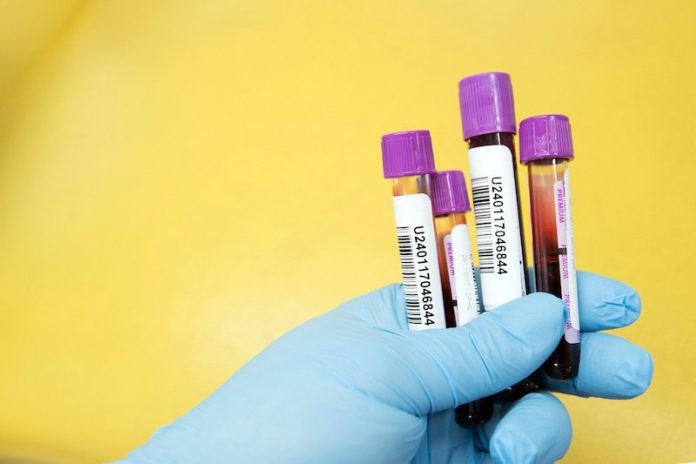
In a new study, researchers found new biomarkers of inflammation that both indicate the severity of COVID-19 and distinguish it from severe influenza.
They found clusters of inflammatory disease markers (including two called GM-CSF and IL-6) that scale with COVID-19 severity.
IL-6 is already proven to be a target for therapies that reduce disease severity in severe COVID-19, but GM-CSF has potential as a new marker of severity that distinguishes COVID-19 from influenza.
The research was conducted by the University of Liverpool and elsewhere.
A ‘cytokine storm,” where uncontrolled levels of cytokines (proteins released by immune cells) cause excessive inflammation, has been identified as a driver of COVID-19 severity.
Anti-inflammatory drugs such as corticosteroids (e.g., dexamethasone) or those that interrupt cytokine function (e.g. tocilizumab) strongly reduce mortality in COVID-19 patients.
In the study, the team recruited 471 hospitalized COVID-19 patients along with 39 outpatients with mild disease. They analyzed 33 disease markers in the blood plasma of these patients.
The researchers found that many inflammatory cytokines were elevated in severe COVID-19 and that levels are generally indicative of disease severity.
In particular, two cytokines in particular, IL-6 and GM-CSF, play central roles.
When compared with samples from severe influenza patients, GM-CSF stood out as a specific marker for severe COVID-19.
This cytokine can also be detected in early COVID infection, indicating it may play a pathologic role in early disease development in some patients.
While older patients showed a greater all-around inflammatory response, age was not a specific determinant of GM-CSF levels in this study.
The team says further research is needed to see if GM-CSF could be used as a marker in early disease to identify those at risk of going on to develop more severe symptoms.
One author of the study is Dr. Ryan Thwaites. The study is published in Science Immunology.
Copyright © 2021 Knowridge Science Report. All rights reserved.



